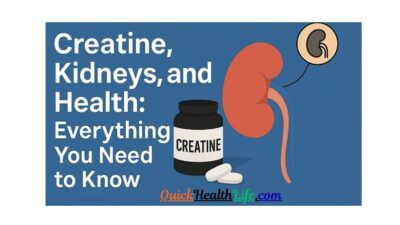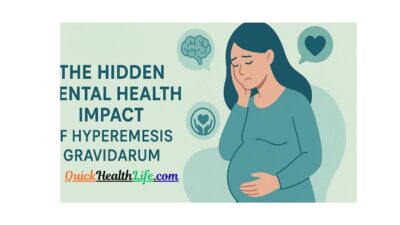The recent report that 41,000 children in Karnataka are living with Congenital Heart Disease (CHD) is a serious reminder that childhood heart problems need our attention. CHD is one of the most common birth defects worldwide, and when caught early, it can often be managed or corrected.
What Is Congenital Heart Disease (CHD)?
Congenital Heart Disease is a defect in the structure of a baby’s heart that is present from birth.
It can range from small holes in the heart to more complex problems like missing valves.
Key Types of CHD
- Atrial Septal Defect (ASD) – a hole in the wall between upper chambers.
- Ventricular Septal Defect (VSD) – a hole between lower chambers.
- Tetralogy of Fallot – a combination of four abnormalities.
- Patent Ductus Arteriosus (PDA) – an open blood vessel that should close after birth.
Table of Contents
How CHD Affects Children
Children with CHD may tire easily, struggle with weight gain, or have bluish skin due to poor oxygen levels.
Early detection improves survival rates dramatically.
Latest 2025 CHD Data in Karnataka
Recent government health records estimate around 41,000 children in the state have CHD.
This figure reflects both improved reporting and the growing need for pediatric cardiac services.
Government Reports and Numbers
The Karnataka Health Department’s 2025 report shows a prevalence rate of 8 per 1,000 live births, consistent with global averages.
Urban vs. Rural Statistics
Urban centers like Bengaluru report higher detection rates, while rural areas face underdiagnosis due to limited screening facilities.
Symptoms Parents Should Watch
Recognizing early signs is vital.
Early Warning Signs in Infants
- Difficulty feeding
- Fast breathing
- Poor weight gain
- Bluish lips or skin
Symptoms in Older Kids
- Frequent chest infections
- Fatigue during play
- Swelling in legs or abdomen
Causes and Risk Factors
CHD doesn’t have a single cause.
Common risk factors include:
Genetic Influences
Conditions such as Down syndrome or family history of heart defects increase risk.
Environmental & Lifestyle Factors
- Maternal diabetes
- Certain infections during pregnancy (like rubella)
- Exposure to harmful substances such as tobacco or alcohol
Diagnosis: How CHD Is Detected
Doctors use advanced tools to catch CHD early.
Prenatal Screening
Fetal echocardiograms during the second trimester can reveal many heart defects.
Post-Birth Tests and Imaging
Pulse oximetry, chest X-rays, and echocardiograms confirm diagnosis after birth.
Treatment
Treatment varies depending on severity.
Medications and Monitoring
Some minor defects close naturally and need only regular checkups and medicines.
Surgical Interventions
Complex cases may require open-heart surgery or minimally invasive catheter procedures.
Cost of CHD Treatment in India
Treatment costs can range from ₹1.5 lakh to ₹5 lakh depending on the procedure.
Government Schemes & Insurance
Programs like Ayushman Bharat and state health insurance cover part of these expenses, making surgery affordable for many families.
Living with CHD: Daily Care Tips
- Follow a balanced diet rich in fruits and vegetables.
- Keep up with scheduled doctor visits.
- Encourage gentle physical activity approved by a cardiologist.
CHD Prevention and Awareness
While not all cases are preventable, healthy habits matter.
Maternal Health Measures
- Take folic acid supplements.
- Avoid smoking and alcohol.
- Manage chronic conditions like diabetes.
Role of Vaccination and Nutrition
Rubella vaccination before pregnancy and proper prenatal nutrition reduce risks.
CHD Awareness Month & Community Support
Every February, CHD Awareness Month highlights the importance of early detection and research.
Support groups help parents connect and share resources.
Success Stories and Hope
Many Karnataka children who underwent surgery now lead active, happy lives—proof that early diagnosis saves futures.
FAQs
1. What is the survival rate for children with CHD?
With early treatment, survival rates can exceed 90% for many defects.
2. Can CHD be cured without surgery?
Some small defects close naturally or respond to medication, but complex cases need surgery.
3. Is CHD hereditary?
Genetics play a role, but many cases occur without family history.
4. How early can CHD be detected?
Many defects are detectable in the second trimester through fetal echocardiography.
5. What lifestyle changes help a child with CHD?
Balanced diet, regular follow-ups, and light exercise as advised by doctors.
6. Are government funds available for CHD treatment in Karnataka?
Yes, programs like Ayushman Bharat and state schemes provide financial assistance.
Conclusion: Building a Healthier Future
The figure of 41,000 children with CHD in Karnataka highlights the urgent need for awareness, screening, and accessible treatment.
By supporting government programs, encouraging maternal health, and promoting regular checkups, we can give every child a healthier start.



